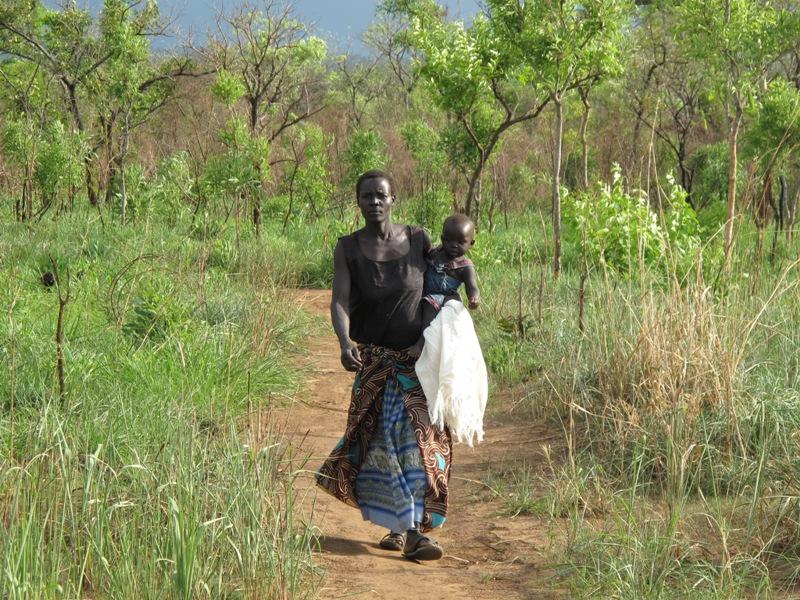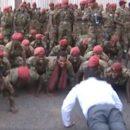StopKony fine, but North Uganda post-conflict reconstruction is the real story – By Marjoke Oosterom

 The “˜Kony2012‘ documentary film was put online on March 5 by the US-based organisation Invisible Children. Within days, the film helped raise $5 million for the organisation, and within a week attracted 70m viewers worldwide. Although the film shows the acute suffering of LRA victims, especially children, what remains invisible are wounds of a society years after the LRA left. The real story for after Kony2012 is told in the recent film The Governance Gap – which demonstrates that stopping Kony does not put an end to the suffering of the people of Northern Uganda.
The “˜Kony2012‘ documentary film was put online on March 5 by the US-based organisation Invisible Children. Within days, the film helped raise $5 million for the organisation, and within a week attracted 70m viewers worldwide. Although the film shows the acute suffering of LRA victims, especially children, what remains invisible are wounds of a society years after the LRA left. The real story for after Kony2012 is told in the recent film The Governance Gap – which demonstrates that stopping Kony does not put an end to the suffering of the people of Northern Uganda.
The Governance Gap demonstrates the enduring – often invisible – legacy of the LRA war through the story of Nighty, a 44 year old Acholi woman. As Nighty demonstrates, The Acholi developed a “˜survival mindset’ to cope with decades of violence from both the LRA and the Ugandan military. Food and safety became the priority, as opposed to the processes of day-to-day governance.
The conflict undermined the capacity of the Acholi to act effectively as Ugandan citizens and decreased their confidence to re-engage in post-war democratic processes. Having lived in a militarised environment, people are still reluctant to raise issues they perceive to be sensitive. Moreover, they have little experience in dealing with a developmental state. For years, all they asked for was security – now that they have it, many won’t ask for more. This undermines the “˜demand side’ of governance and means that Acholi lack experience in actively engaging in the reconstruction of their region and in decision-making. Nor are they actively invited to participate.
It also shows the gap in how Acholi perceive themselves within Uganda – “˜We are like slaves being brought into Uganda,’ Nighty says. Acholi feel like second-class citizens within the Ugandan state, and current post-war reconstruction efforts do not sufficiently target these feelings.
Existing post-conflict recovery efforts by the government and international donors focus on “˜hardware’ – rebuilding physical infrastructure and services. This is important. As a consequence of the war, poverty in the Acholi region is far worse than in the rest of the country, and is clearly visible. What is less visible is how the past experiences of war and life in the camps have persisted into the present. Interventions should therefore also focus on the “˜software’ – building citizens’ capacity to re-engage in decision-making and democratic processes. And as The Governance Gap shows, reconstruction should include a process of national reconciliation in which the state acknowledges the atrocities committed by the military as well as its failure to end the war. Until now, citizens have had few opportunities to make their voices heard in the reconstruction process.
A campaign film such as “˜Kony2012′ may not be expected to provide the detailed nuance of a story as told by The Governance Gap. What it did, was remind the world of a “˜forgotten conflict’ where injustice had been done to thousands of people since the late 1980s (and don’t forget, not just by the LRA but also by the Ugandan government, and as some would argue, by failing humanitarian actors). And true, Kony and his LRA continue to cause suffering. Every victim is one too many. They need to be stopped. They also need to be brought to justice, whether through the International Criminal Court or local forms of justice that seem more culturally accepted and appropriate.
If Kony is captured this would solve a forgotten conflict, but not its aftermath. Since Kony left Uganda five years ago both the tangible and invisible consequences are still very real. And deserve as much attention as capturing Kony.
Marjoke Oosterom is a PhD candidate in the Participation, Power and Social Change Team at the Institute of Development Studies. She works on citizenship and participation in (post)conflict settings. The film The Governance Gap is based on her PhD research in the LRA affected areas of Northern Uganda, where she spent a year in a rural village just 10km from the border with South Sudan. For More insights from her research see: http://www.hivos.nl/eng/Hivos-Knowledge-Programme/Communities/Post-Conflict-Participation/Blog






i agree…kony’s war is a ‘forgotten war’ i first came upon the name Kony in 2004…i hadn’t the slightest clue on who the man was…but with time i educated myself…it with that reason that i think the viral video “Stop Kony” is relevant for it shines a light on an individual who despite having left Uganda is now terrorizing the people in DRC.
[…] Existing post-conflict recovery efforts by the government and international donors focus on ‘hardware’ – rebuilding physical infrastructure and services. This is important. As a consequence of the war, poverty in the Acholi region is far worse than in the rest of the country, and is clearly visible. What is less visible is how the past experiences of war and life in the camps have persisted into the present. Interventions should therefore also focus on the ‘software’ – building citizens’ capacity to re-engage in decision-making and democratic processes. Read more… […]